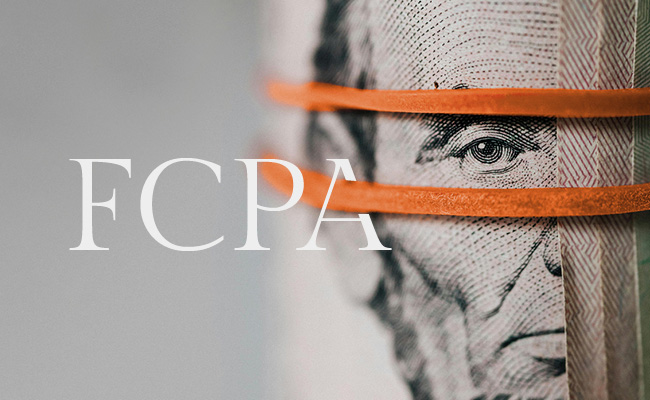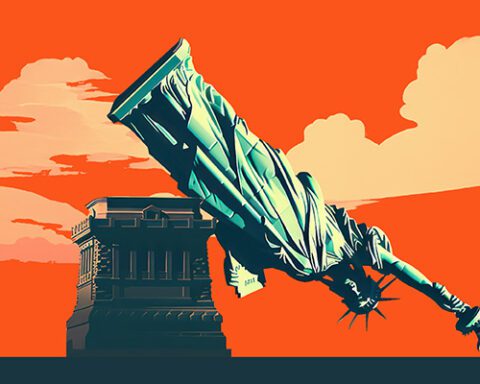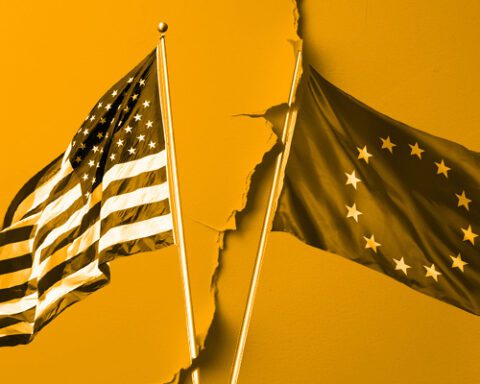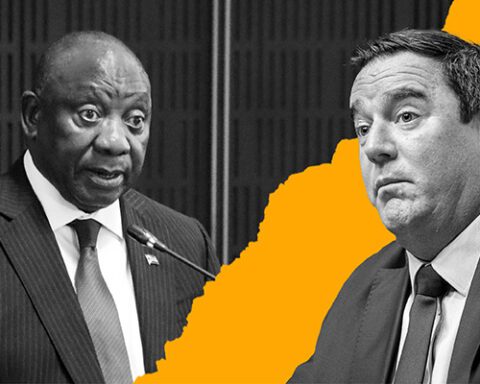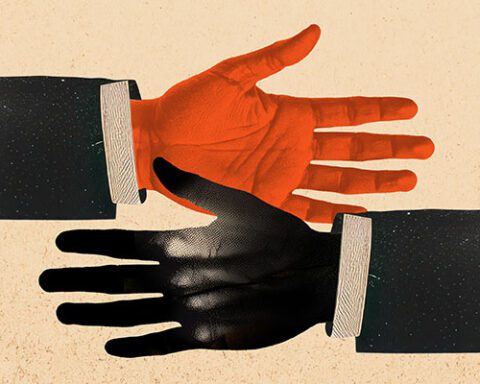David Lewis, founding executive director of Corruption Watch, describes the US’s Foreign Corrupt Practices Act (FCPA) as “the most effective anti-corruption instrument in the world, without a doubt”.
So effective that US President Donald Trump decided it was cramping American business. On Monday, Trump signed an executive order directing the US attorney-general to suspend enforcement of the 48-year-old act. After signing the order Trump told journalists in the Oval Office: “It’s going to mean a lot more business for America.” (Currency was not immediately able to get comment from the American Chamber of Commerce on what this latest development might mean for US business in South Africa.)
The act, introduced under President Jimmy Carter in 1977, prohibits US citizens and entities from bribing foreign government officials to benefit their business interests. In 1998 the act was amended to include foreign persons and entities.
Lewis knows what he’s talking about when he describes the FCPA as the most effective anti-corruption instrument in the world. Consulting group McKinsey had paid little heed to Corruption Watch’s investigation into McKinsey’s business dealings with Eskom until Corruption Watch said it was referring the matter to the US Department of Justice (DoJ) for investigation under the FCPA. “Their attitude changed immediately,” Lewis tells Currency.
Unlike South Africa’s National Prosecuting Authority, the DoJ is enormously well resourced and equipped with highly skilled investigators. There is every reason to take them seriously.
In December 2024 the DoJ announced McKinsey had been fined $122m to resolve its investigation into “a scheme to pay bribes to government officials in South Africa between 2012 and 2016”.
At the time principal deputy assistant attorney-general Nicole Argentieri said: “McKinsey Africa bribed South African officials in order to obtain lucrative consulting business that generated tens of millions of dollars in profits.”
An increase in corruption
The McKinsey fine wasn’t the first time that the powerful DoJ worked with South African authorities to investigate and prosecute corporate corruption. In January 2024 German-based global software company SAP had to hand over $220m to resolve charges related to schemes to pay bribes to South African and Indonesian officials. The South African schemes related to contracts with the City of Joburg, the City of Tshwane, the department of water and sanitation, and Eskom.
In December 2022, Swiss-based global technology group ABB paid $315m to resolve an investigation into violations of the FCPA stemming from the bribery of high-ranking officials at Eskom.
Hitachi was the first high-profile company to be targeted by the DoJ in South Africa. It was singled out for making “improper payments” to the ANC. Back in 2015 the Japanese company paid $19m to settle charges related to contracts to build power plants for Eskom.
The DoJ also slapped a $2.5m fine on consulting firm Gartner for corruption involving the South African Revenue Service.
So you can see why corruption-busters across the country will be devastated by Trump’s move. “I think it really will result in an increase in the level of corruption,” says Lewis.
While the initial FCPA was restricted to US companies, its scope has been steadily extended. The FCPA resource guide says the act allows US authorities to go after any domestic company or any company with a listing on a US stock exchange. It doesn’t end there. If the conduct involved a telephone call, an email, text or fax sent or received in the US, or involved the US banking system, it will also fall within the DoJ’s jurisdiction. Or, at least it did, until Trump’s executive order.
Though it’s not the first time the act has been criticised for impeding American companies’ ability to do business internationally, Trump’s order highlights the extent of change facing US business and society right now.
In 1977 the US Congress had introduced the act to try and rein in the slew of bribery of foreign officials by US companies that had apparently undermined public confidence in the integrity of American business.
Trump’s tack seems to be that the problem is not American companies per se, but the corrupt countries – or companies – with whom they are doing business. He said on Monday: “It sounds good on paper, but in [practice] it’s a disaster. It means that if an American goes over to a foreign country and starts doing business over there legally, legitimately or otherwise, it’s almost a guaranteed investigation, indictment and nobody wants to do business with the Americans because of it.”
Yet, recently, the US House of Representatives described bribery as unethical and counter to the moral expectations of the American public. Not only is it unethical, said the House of Representatives, it is bad business and erodes public confidence in the integrity of the free market. Furthermore, left unchecked it leads to inefficiency and pressures ethical companies to follow suit or risk losing business.
All in all, it’s hard to see Trump’s latest move as anything but a major blow to the global fight against corruption.
Sign up to Currency’s weekly newsletters to receive your own bulletin of weekday news and weekend treats. Register here.
